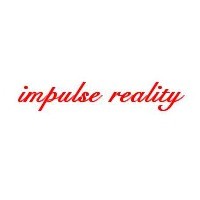Copy Link
Add to Bookmark
Report
AIList Digest Volume 5 Issue 265

AIList Digest Friday, 13 Nov 1987 Volume 5 : Issue 265
Today's Topics:
Seminar - Generate, Test, and Debug (BBN),
Conference - Machine Translation &
Expert Systems and Software Engineering &
1st Australian Knowledge Engineering Congress &
Visual Form and Motion Perception
----------------------------------------------------------------------
Date: Tue 10 Nov 87 16:11:34-EST
From: Marc Vilain <MVILAIN@G.BBN.COM>
Subject: Seminar - Generate, Test, and Debug (BBN)
BBN Science Development Program
AI Seminar Series Lecture
GENERATE, TEST AND DEBUG: A PARADIGM FOR SOLVING
INTERPRETATION AND PLANNING PROBLEMS
Reid Simmons
MIT AI Lab
(REID%OZ.AI.MIT.EDU@XX.LCS.MIT.EDU)
BBN Labs
10 Moulton Street
2nd floor large conference room
10:30 am, Tuesday November 17
We describe the Generate, Test and Debug (GTD) paradigm and its use in
solving interpretation and planning problems, where the task is to
find a sequence of events that could achieve a given goal state from a
given initial state. The GTD paradigm combines associational
reasoning in the generator with causal reasoning in the debugger to
achieve a high degree of efficiency and robustness in the overall
system. The generator constructs an initial hypothesis by finding
local domain-dependent patterns in the goal and initial states and
combining the sequences of events that explain the occurrence of the
patterns. The tester verifies hypotheses and, if the test fails,
supplies the debugger with a causal explanation for the failure. The
debugger uses domain-independent debugging algorithms which suggest
repairs to the hypothesis by analyzing the causal explanation and
models of the domain.
This talk describes how the GTD paradigm works and why its combination
of reasoning techniques enables it to achieve efficient and robust
performance. In particular, we will concentrate on the actions of the
debugger which uses a "transformational" approach to modifying
hypotheses that extends the power of the "refinement" paradigm used by
traditional domain-independent planners. We will also discuss our
models of causality and hypothesis construction and the role those
models play in determining the completeness of our debugging algorithms.
The GTD paradigm has been implemented in a program called GORDIUS. It
has been tested in several domains, including the primary domain of
geologic interpretation, the blocks world, and the Tower of Hanoi
problem.
------------------------------
Date: Fri, 6 Nov 87 16:19:20 EST
From: Machine.Translation.Journal@NL.CS.CMU.EDU
Subject: Conference - Machine Translation
CONFERENCE ON MACHINE TRANSLATION
CALL FOR PAPERS
The Second International Conference on Theoretical and
Methodological Issues in Machine Translation of Natural Languages
will be held June 12 - 14 at the Center for Machine Translation,
Carnegie-Mellon University, Pittsburgh, PA.
Contributions are solicited on all topics related to machine
translation, machine-aided translation, and, generally, automatic
analysis and generation of natural language texts, the structure
of lexicons and grammars, research tools, methodologies,
knowledge representation and use, and theory of translation.
Relevant submissions on other topics are also welcome.
Extended abstracts (not exceeding 1,500 words) should be sent
to
MT Conference Program Committee
Center for Machine Translation
Carnegie-Mellon University
Pittsburgh PA 15213, U.S.A.
(412) 268 6591
Submission Deadline: February 1, 1988
Notification of Acceptance: March 21, 1988
Final Version Due: April 18, 1988
All submissions will be refereed by the members of the Program Committee:
Christian Boitet (University of Grenoble)
Jaime Carbonell (Carnegie-Mellon University)
Martin Kay (Xerox PARC)
Makoto Nagao (Kyoto University)
Sergei Nirenburg (Carnegie-Mellon University)
Victor Raskin (Purdue University)
Masaru Tomita (Carnegie-Mellon University)
All inquiries should be directed to
Cerise Josephs
Center for Machine Translation
Carnegie-Mellon University
Pittsburgh, PA 15213 U.S.A.
(412) 268 6591
cerise@nl.cs.cmu.edu.ARPA
------------------------------
Date: Mon, 9 Nov 1987 02:29 CST
From: Leff (Southern Methodist University)
<E1AR0002%SMUVM1.BITNET@wiscvm.wisc.edu>
Subject: Conference - Expert Systems and Software Engineering
CALL FOR PARTICIPATION
A Joint IEEE Software and IEEE Expert Special Issue on
"The Interactions Between Expert Systems and Software Engineering"
In FJCC'87 a panel composed of R. Balzer (Information Sciences Institute),
C. V. Ramamoorthy (University of California at Berkeley), W. W. Royce
(Lockheed Software Technology Center), M. M. Tanik (Southern Methodist
University), W. Bledsoe (MCC), D. Y. Y. Yun (Southern Methodist University),
and Roger Bates (Texas Instruments), discussed the issues related to
interactions between AI and Software Engineering. It is observed that there
was a growing interest among practitioners of AI and SE to look into the
issues concerning both of these fields. Recent papers from C. V. Ramamoorthy
(IEEE Computer, Jan. 1987) and H. Simon (IEEE TSE, July 1986) summarizes some
of the interest areas and concerns.
Now, IEEE Software and IEEE Expert seek contributions for special issues that
will be published in November 1988. The focus of these issues will be on the
interactions between the fields of Artificial Intelligence and Software
Engineering.
Original research papers as well as general categories of tutorials, surveys,
and overviews are welcome.
Two hundred word abstracts should be submitted as soon as possible, and eight
copies of manuscripts are due by February 1, 1988 addressed to:
Murat M. Tanik
Southern Methodist University
Department of Computer Science and Engineering
Dallas, TX 75275-0122
(214) 692-2854
------------------------------
Date: 10 Nov 87 12:05:14 +1000 (Tue)
From: "ERIC Y.H. TSUI" <munnari!aragorn.oz.au!eric@uunet.UU.NET>
Subject: Conference - 1st Australian Knowledge Engineering Congress
(Nov. '88)
1ST
AUSTRALIAN
KNOWLEDGE
ENGINEERING
CONGRESS
NOVEMBER 15TH - 17TH 1988
CALL FOR PAPERS
Following the success of the 1st Australian Artificial Intelligence Congress
in November 1986, Melbourne will be the host to its successor -
the Australian Knowledge Engineering Congress - in November 1988.
Contributions are invited on every aspect of Knowledge Engineering and
Knowledge-base technology: Expressions of interest in the program and
supporting activities are now invited either on the following topics or
on any related theme:
Expert Systems case studies
Knowledge Engineering (including Prototyping) methodologies
Design and use of Conceptual Schemas
Natural Language Interfaces
Evaluation of tools and expert systems
Role of consultants in Knowledge Engineering
Design of Intelligent Tutors and Conversational Advisors
Knowledge Source Systems
Inference mechanisms
A preliminary indication of interest in offering a paper, management of
specific streams and/or tutorial presentations should be sent as soon
as possible to :-
Professor B. Garner
DEAKIN UNIVERSITY
VICTORIA 3217
AUSTRALIA
Electronic mail: brian@aragorn.oz
Eric Tsui eric@aragorn.oz
------------------------------
Date: Thu, 12 Nov 87 15:52:22 est
From: ennio@bucasb.bu.edu (Ennio Mingolla)
Subject: Conference - Visual Form and Motion Perception
VISUAL FORM AND MOTION PERCEPTION:
PSYCHOPHYSICS, COMPUTATION,
AND NEURAL NETWORKS
Friday and Saturday, March 4 and 5, 1988
Conference Auditorium, George Sherman Union, Boston University
775 Commonwealth Avenue, Boston, Massachusetts
This meeting has been dedicated to the memory of the late
KVETOSLAV PRAZDNY, who was to have been a speaker, and
whose tragic death has deprived the field of visual
perception of one of its most talented investigators.
Speakers include:
L. AREND Eye Research Inst. V. RAMACHANDRAN UCSD
S. ANSTIS York University A. REEVES Northeastern Univ.
I. BIEDERMAN Univ. of Minnesota W. RICHARDS MIT
P. CAVANAGH Univ. of Montreal R. SAVOY Rowland Inst.
J. DAUGMAN Harvard University G. SPERLING New York Univ.
S. GROSSBERG Boston University J. TODD Brandeis Univ.
J. LAPPIN Vanderbilt Univ. S. ZUCKER McGill University
E. MINGOLLA Boston University
This meeting is sponsored by the Boston Consortium for Behavioral and
Neural Studies, a group of researchers supported by the Air Force Office
of Scientific Research Life Sciences Program. A Howard Johnson's Motor
Lodge is located at 575 Commonwealth Avenue, and a limited number of rooms
at a reduced conference rate can be reserved until February 10, 1988 by
those attending the meeting. Total conference registration will be
limited by available meeting space, so early registration is advised.
Registration and hotel accomodations for the meeting are being
handled by:
UNIGLOBE--Vision Meeting Telephone:
40 Washington Street (800) 521-5144
Wellesley Hills, MA 02181 (617) 235-7500
A meeting registration and hotel reservation form is attached to this
announcement. For further information about travel or accomodation
arrangements, contact UNIGLOBE at the above address or telephone numbers.
[Contact the sender for the registration form. -- KIL]
------------------------------
End of AIList Digest
********************






















